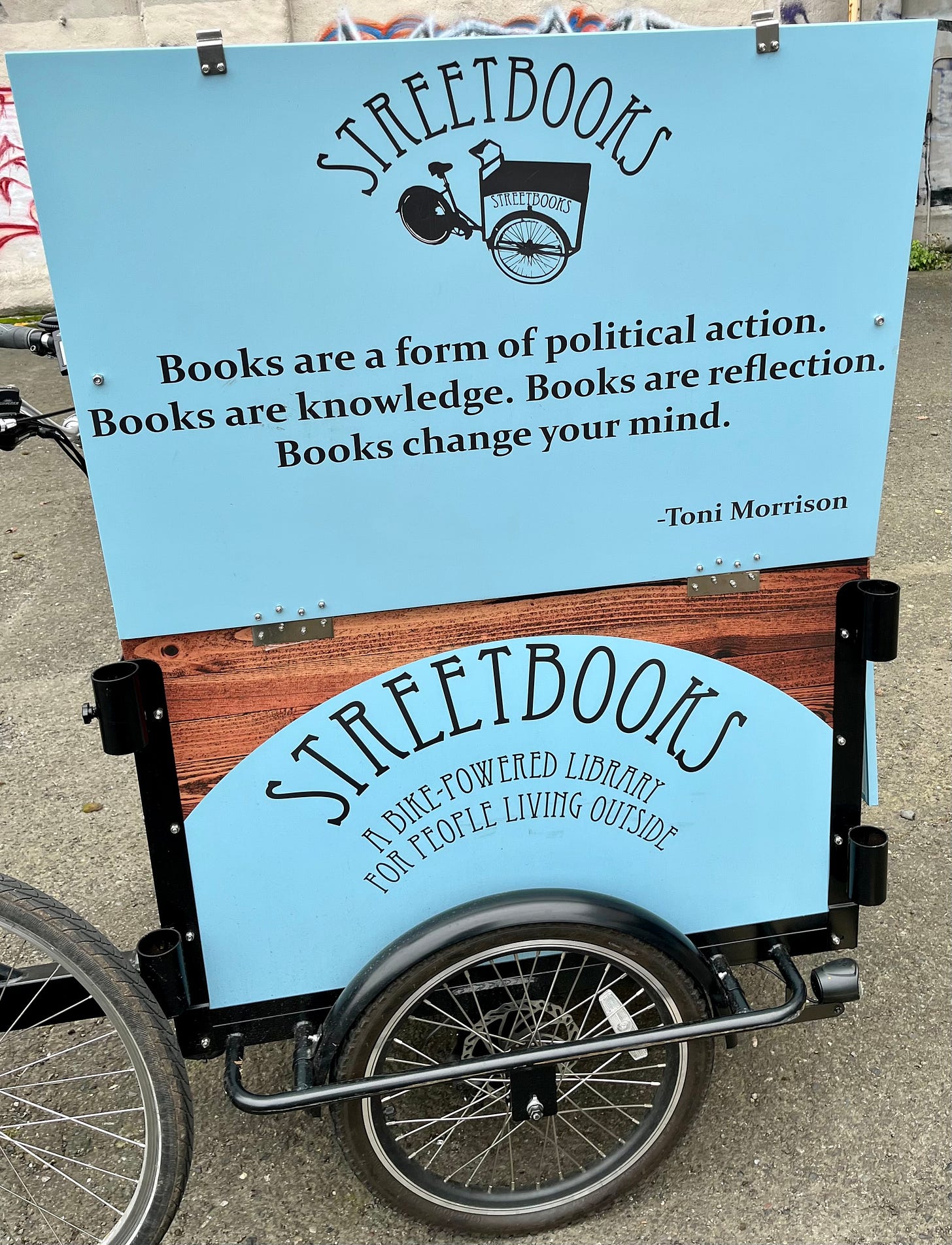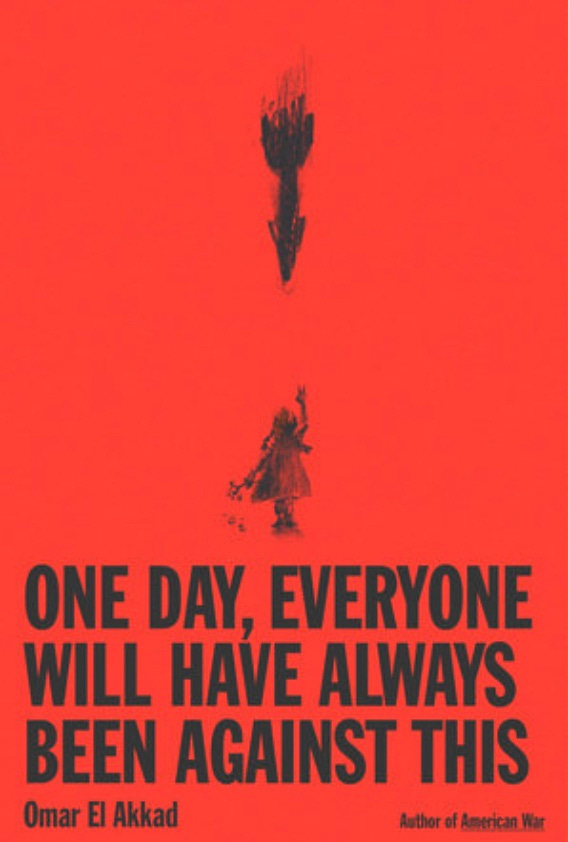Welcome. Truth & Dare is a monthly post that offers one Truth (a writing prompt) and one Dare (an artistic gesture in the world). You might also find: thoughts on writing, art, books and paying attention. You won’t find: a paywall or a thicket of hyperlinks taking you someplace else. Just a clean read, a cup of herbal tea poured over your frontal lobe. No noise. No distraction. Thanks for being here.
June marks six months since my family and I got more acquainted with the inside of a hospital ICU than we ever would have wanted, (I wrote a post about it in March1) and I am relieved to report that my dad has made a crazy-miraculous recovery, regaining his speech, and building back mobility. Recently as my mom and I stood on the grass outside their house, we heard a motor fire up in the barn, Roy rounded the corner on his riding lawnmower and commenced mowing the grass. It was the first time since his medical event, and as he passed us like “nothing to see here, folks,” we looked at one another in wonder. By sticking around, he was here to celebrate his 80th birthday, attend the graduation party for my daughter Sylvie, do countless Wordles with my mom and see the bird feeder fill with Chickadee and Juncos and Grosbeaks again. He’s even sent us podcast recommendations again, something he was known for. If Emily Dickinson is right that “life is a spell so exquisite, everything conspires to break it,” then let us live inside this re-cast spell for now. And give thanks, thanks, thanks.
In April I received the Stewart H. Holbrook Literary Legacy award. Holbrook was apparently an American journalist and historian known for writing "lowbrow" or "non-stuffed shirt history." Brian Booth writes, “His writings, sense of humor and social criticism also made him a sort of combination of Will Rogers, Mark Twain and H.L. Mencken for Portland and the Pacific Northwest.”2 I like the idea of receiving an award named for a person who poked fun at stuffed-shirts and whose writing reflects an affinity for “underdogs, visionaries and fanatics.” It captures our own ethos at Street Books, and that’s why the whole crew showed up to receive this recognition. Here’s the speech I gave:
Thank you Literary Arts for this award. Before I give my 3-minute speech, I want to thank my parents, Roy and Dottie Moulton. Dottie is here tonight – she read Russian novels while she was pregnant with me and I credit her for instilling in me an early love of reading and a reverence for the book. Thank you to Ben Parzybok, my longtime literary partner in crime and in life, and for our kids, Coen and Sylvie.
Literary Arts awarded Ben and me a publishing grant in 1999 for Gumball Poetry3, a literary journal published into gumball machines in cafes and bookstores in Portland and across the country. Each capsule contained a poem and a piece of bubble gum, and our slogan was: “Rot your teeth, not your mind.” It was the Literary Arts Writers in the Schools program that gave me a chance to teach writing residencies in high school classrooms around Portland for over 20 years.
Street Books began nearly 15 years ago with help from a grant from the Regional Arts & Culture Council who went on to help us again with a literary grant so that my co-author Ben Hodgson and I could finish our book, Loaners: The Making of a Street Library4, published by Michael Heald at Perfect Day Publishing. Street Books is a street library that provides community, resources and advocacy for people living outside or at the margins in Portland5. Librarians set up bike libraries five days a week, operating shifts in up to 15 different locations. No fees, no fines – just welcoming conversation on the street. We also offer life-saving survival supplies, so that in the same shift, a patron might leave with a copy of Bury My Heart at Wounded Knee and a box of Narcan to prevent an overdose. We believe in the transformative capacity of books, both for the individual and the collective. One of our bike libraries features a quote by Toni Morrison: Books are a form of political action. Books are knowledge. Books change your mind.
It's books that are currently under attack in our country,6 along with libraries, librarians, cultural organizations and the arts. People, too, are under attack. People who have no fixed address, who lack access to the capital necessary to navigate the system. What can we do, collectively, to push back at this? Those of us who love books, who believe that every person deserves a safe, affordable place to live and to thrive. What shall we do?
The Street Books team is here tonight: Will you please stand up? [they stood, and everybody cheered]. And I have a favor to ask of the audience. If you have ever donated books or funds or your time to Street Books, or you’ve ever checked out a book from our library, will you also stand? [so many people stood — it was moving to see them all]. The recognition built into the Stewart H. Holbrook award is for all of us – this is what it takes to build a network of compassion and care. And it’s the answer to the question, What shall we do?
Thank you so much.
Book Recommend:
Omar El Akkad was the host of the awards ceremony and was disarmingly funny, a fact that might surprise folks who read his latest book, One Day Everyone Will Have Always Been Against This, which one reviewer7 called a “deft, broken-hearted, rhetorical savaging of comfortable people who say nothing (or pay lip service) but care only about preserving normality.” A few facts about the book:
The title of the book comes from a tweet Omar posted three weeks after the bombardment of Gaza began: “One day, when it’s safe, when there’s no personal downside to calling a thing what it is, when it’s too late to hold anyone accountable, everyone will have always been against this.”
Born in Egypt and raised in Qatar and then Canada, Omar documents the way his early enchantment with the West gradually fades as he witnesses the way it falls short on its promises, and he realizes there will always be entire groups of human beings it has never intended to treat as fully human—not just Arabs or Muslims or immigrants, but whoever falls outside the boundaries of privilege.8 He describes the cognitive dissonance of watching his daughter happily building a paper city down their hallway in Oregon while he sees images of children in Gaza being blown into pieces and flattened in buildings by falling bombs. The Washington Post9 calls this book a “bracing case for empathy” and I have read it with that in mind — what does it mean for me to refuse to look away from what’s happening in the world, in Gaza, in Sudan, Somalia, Syria and so many places where people are struggling to survive?
Omar is known for his stellar interviewing, (authors like Margaret Atwood and Ta-Nehisi Coates, among others) and we were lucky to enlist him10 when we launched our own book.
Truth & Dare:
Truth: Write about an exquisite spell you were under that suddenly broke. What was it and what happened?
Dare: Make a ceremony around reading a book. Find some shade, a cold drink and carve out an hour to read, away from any tech that might distract you. Bonus points for reading a book from the banned book list (see footnote #6 for some titles) and for posting what you’re reading in the comments.
Thanks for reading this far. I hope you are having a good summer inside the tumble dry cycle of our current moment. Love and solidarity to you.
From the Oregon Cultural Heritage Commission
In a thrilling turn of events, Ben has revived Gumball Poetry and installed a machine at The Stacks Coffeehouse. Our kid Sylvie’s line art is featured in the current issue.
Pen America has a list of banned books and so does the American Library Association
Read the complete description and order the book. And listen to another stellar interviewer, David Naimon, in conversation with Omar on his “Between the Covers” podcast.
Washington Post review
A dumb surge in Covid numbers in the fall of 2021 forced the event online, but that’s how we have a good recording of our conversation, so..






It's SO GOOD to know your dad's recovered, and to hear of your well-deserved award! Thanks for the prompts. As for banned books, I am reading Tyrant: Shakespeare on Politics, by Stephen Greenblatt. It's not banned (yet) that I know of, but if it were, more people might read it. It was written during the current president's first run, published in 2018, and is strikingly as relevant to the upcoming NO KINGS Day protests as the bard's history plays have been in centuries past. I highly recommend it.